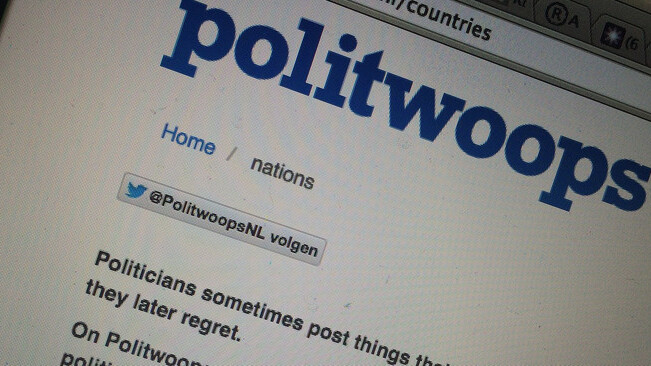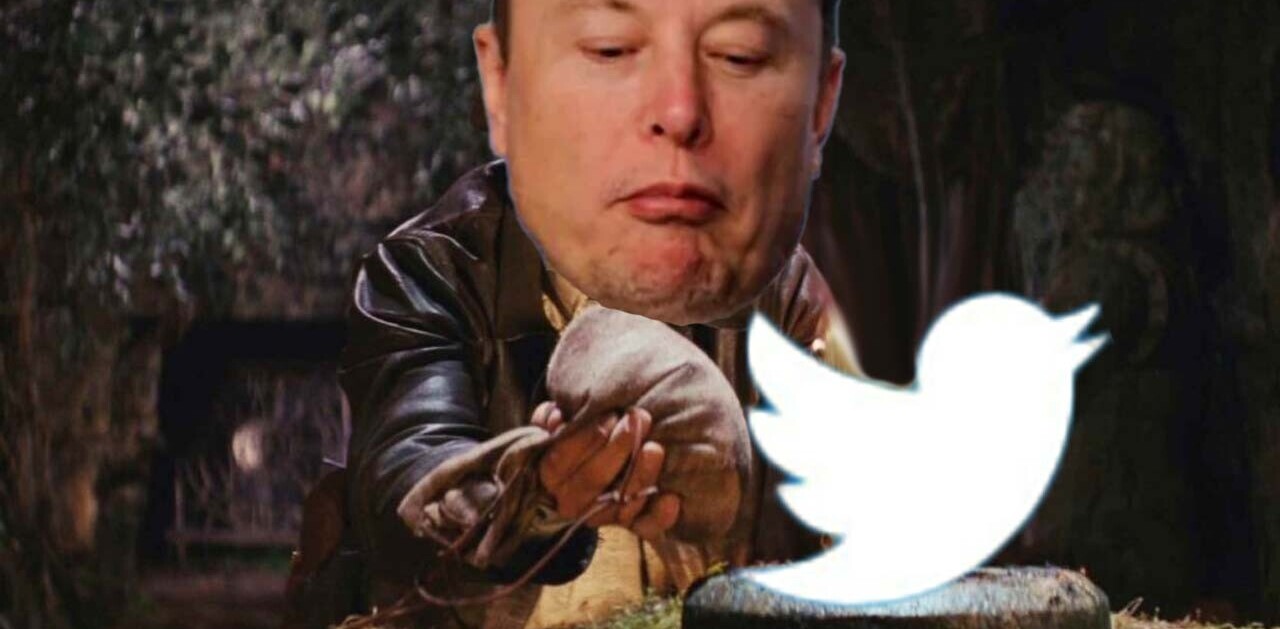
The Open State Foundation (OSF) knew this was coming. The US account was shut down by Twitter in May. Now the hammer has come down on the rest of the group’s Politwoops accounts – each of which was dedicated to monitoring deletions by elected officials in a specific country.
Notice:Twitter have killed part of @politwoops that powers this account. No new posts for now but tweets available at http://t.co/w6y19ppzRZ
— Tweets MPs Delete (@deletedbyMPs) August 22, 2015
Another account, Diplotwoops, launched last year, was focused on screening and highlighting messages deleted by diplomats and embassies around the world. It, like all the other Politwoops accounts, was extensively used by the media to investigate instances of deception, corruption and ineptitude.
OSF says that Twitter told it the decision to shut down the projects came after “thoughtful internal deliberation and close consideration of a number of factors.” The organization quotes a communication from Twitter that reads:
Imagine how nerve-wracking – terrifying, even – tweeting would be if it was immutable and irrevocable? No one user is more deserving of that ability than another. Indeed, deleting a tweet is an expression of the user’s voice.
That standpoint suggests a studied corporate naivety on Twitter’s part. Of course, the public statements of elected officials should be subject to closer scrutiny than those who have not chosen to stand for office.
The genesis of Politwoops was a hackathon in the Netherlands, where OSF is based, it then spread across the world, including countries such as Egypt and Tunisia, where press freedom has been curtailed by governments.
OSF director Arjan El Fassed says:
What elected politicians publicly say is a matter of public record. Even when tweets are deleted, it’s part of parliamentary history. These tweets were once posted and later deleted. What politicians say in public should be available to anyone. This is not about typos but it is a unique insight on how messages from elected politicians can change without notice.
The group says it will continue to work on ways to make messages sent by elected politicians visible.
I have contacted Twitter for a more expansive statement on its thinking.
Read my interview with El Fassed from earlier this summer to find out more about the project and why this shutdown matters.
Update Aug. 24, 1 pm ET: Twitter has responded with the statement below:
The ability to delete one’s Tweets – for whatever reason – has been a long-standing feature of Twitter for all users. We built into our Developer Policy provisions a requirement that those accessing our APIs delete content that Twitter reports as deleted or expired.
From time to time, we come upon apps or solutions that violate that policy. Recently, we identified several services that used the feature we built to allow for the deletion of tweets to instead archive and highlight them. We subsequently informed these services of their noncompliance and suspended their access to our APIs.
We take our commitment to our users seriously and will continue to defend and respect our users’ voices in our product and platform.
Get the TNW newsletter
Get the most important tech news in your inbox each week.





